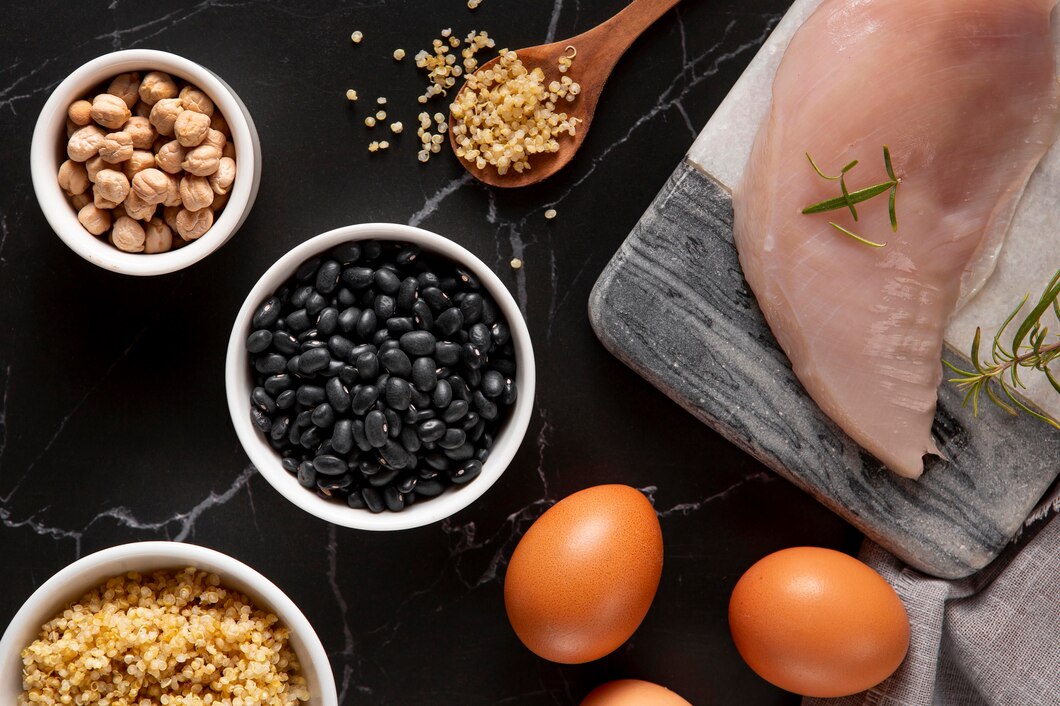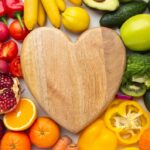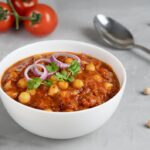If you’re looking to boost your energy, support muscle growth, and maintain strong bones and a healthy immune system, incorporating more protein into your diet is essential. While carbohydrates and healthy fats are crucial for overall wellness, protein plays a key role in many bodily functions. Research published in The American Journal of Clinical Nutrition (2024) highlights how a protein-rich diet can reduce muscle loss, improve cognitive health, and promote healthy aging.
Here are ten high-protein foods that will not only satisfy your hunger but also fuel your body with essential nutrients.
1. Lean Beef
- Protein Content: 22 grams per 3-ounce serving (93% lean ground beef)
Lean beef is a rich source of high-quality protein, zinc (supports immunity), and iron (helps transport oxygen). Whether it’s a Skillet Steak with Mushroom Sauce or a hearty Slow-Cooker Beef Stew, beef makes for a satisfying and nutritious meal.
2. Chicken
- Protein Content: 27 grams per 3-ounce serving (skinless chicken breast)
Chicken is a staple in many households due to its versatility and high protein content. A Baked Lemon-Pepper Chicken or Creamy Parmesan Garlic Mushroom Chicken is an easy and delicious way to add protein to your diet without much fuss.
3. Salmon
- Protein Content: 19 grams per 3-ounce serving
Known for its heart-healthy omega-3 fatty acids, salmon is also a great source of protein. Enjoy it at least twice a week in dishes like Honey-Garlic Salmon or Walnut-Rosemary Crusted Salmon for a flavorful and nutritious meal.
4. Eggs
- Protein Content: 6 grams per large egg
Eggs are a quick and convenient source of protein, ideal for any meal. Whether scrambled, hard-boiled, or in recipes like a Spinach Omelet or Egg Salad, eggs provide a high-quality protein boost.
5. Peanut Butter
- Protein Content: 7 grams per 2 tablespoons
Natural peanut butter is an excellent plant-based protein source. It’s not only delicious in a classic Peanut Butter and Jelly Sandwich but also makes a great addition to Peanut Dressing or energy-packed Peanut Butter Energy Balls for a quick snack.
6. Greek Yogurt
- Protein Content: 10 grams per 6-ounce serving
Greek yogurt is a creamy, protein-rich food that can be enjoyed on its own or used in smoothies, parfaits, and dressings. A Greek Yogurt Parfait with fruits and nuts makes a satisfying, protein-packed breakfast or snack.
7. Lentils
- Protein Content: 18 grams per 1 cup cooked
Lentils are an excellent plant-based protein, loaded with fiber and essential nutrients. Enjoy them in a Vegan Lentil Soup or a Lentil Bowl with Fried Eggs & Greens for a hearty, filling meal that’s rich in protein.
8. Tofu
- Protein Content: 10 grams per 3-ounce serving
Tofu is a versatile, plant-based protein that can be grilled, stir-fried, or added to soups and stews. It’s perfect for vegetarians and vegans looking to increase their protein intake, and it pairs well in dishes like Tofu Stir-Fry or Crispy Tofu Tacos.
9. Cottage Cheese
- Protein Content: 12 grams per 1/2 cup serving
Cottage cheese is a protein-rich dairy product that’s creamy and easy to include in a balanced diet. Try it in a Creamy Spinach Dip or use it as a topping for baked potatoes or salads to boost your protein intake.
10. Quinoa
- Protein Content: 8 grams per 1 cup cooked
Quinoa is a whole grain that contains all nine essential amino acids, making it a complete protein. It’s a great addition to salads, bowls, or as a base for a variety of dishes. Quinoa Salad with Chickpeas and Veggies is a great way to enjoy this protein-packed grain.
What Is Protein and Why Is It Important?
Protein is made up of amino acids, which are essential for building muscle, producing hormones, and supporting the immune system. Your body can’t make all the amino acids it needs, so you must obtain essential amino acids from food. By incorporating protein-rich foods into your diet, you’re providing your body with the building blocks it needs for proper function and health.
How Much Protein Do You Need?
Your daily protein needs depend on your age, weight, and activity level. For healthy adults, the general recommendation is 0.8 grams of protein per kilogram of body weight. For example:
- A sedentary man of average weight requires about 55 grams of protein per day.
- A sedentary woman of average weight needs around 45 grams of protein per day.
Older adults, pregnant or breastfeeding women, and those recovering from injuries may need more protein to maintain and build muscle mass.
Protein is an essential nutrient that plays a critical role in maintaining overall health, from muscle growth and recovery to immune function and cognitive health. By incorporating a variety of high-protein foods like lean beef, chicken, salmon, eggs, and plant-based options like lentils and quinoa into your meals, you’ll be giving your body the nourishment it needs to thrive. Whether you’re a meat-eater, vegetarian, or somewhere in between, these protein-packed foods will help you meet your health and wellness goals.








